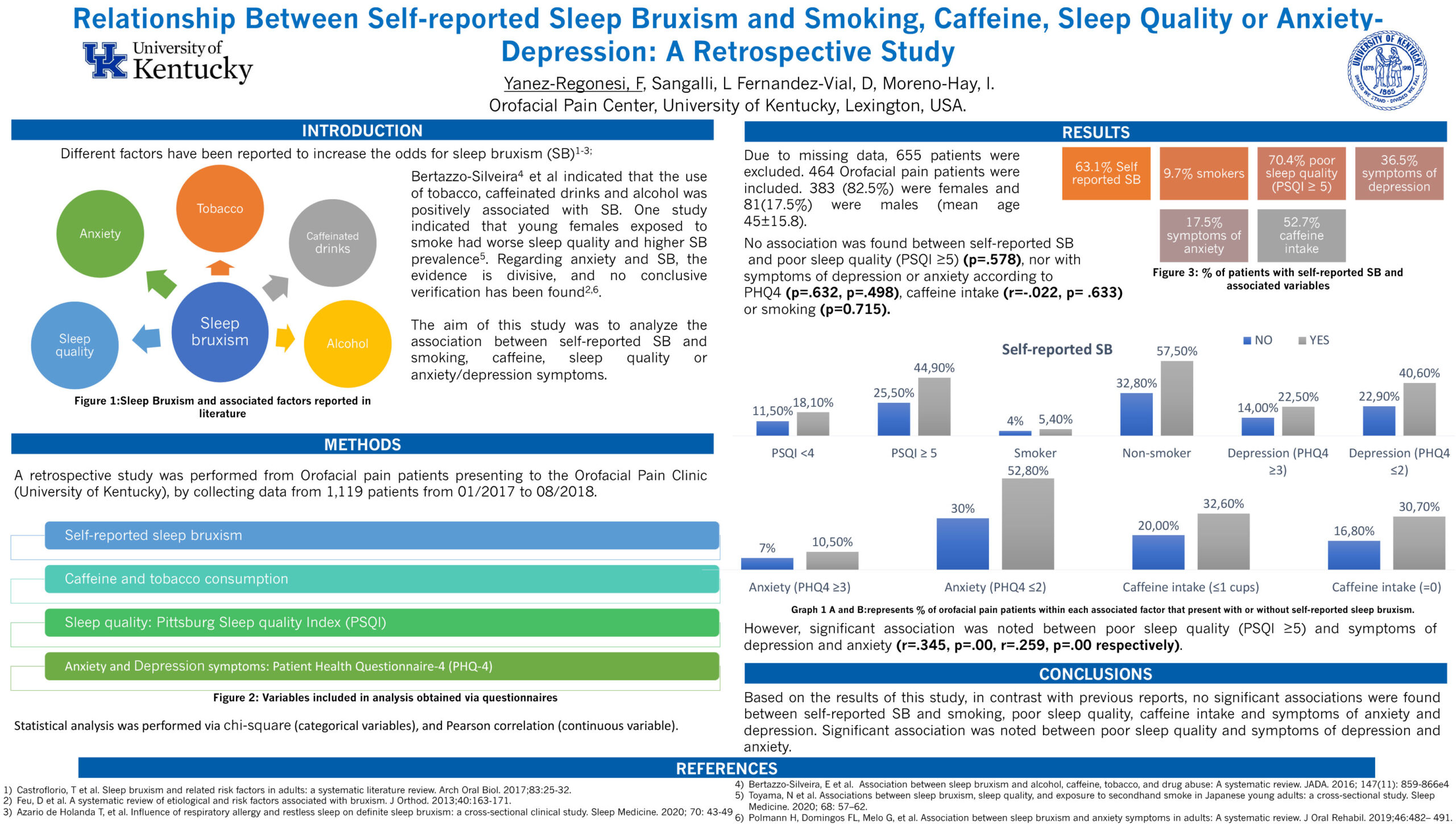This POSTER has VIDEO and IMAGE elements. Hover over the image above and use the ![]() arrows to navigate
arrows to navigate
Relationship Between Self-reported Sleep Bruxism and Smoking, Caffeine Intake, Sleep Quality or Anxiety-Depression Symptoms: A Retrospective Study
Author(s):Yanez-Regonesi, F, Sangalli, L, Fernandez-Vial, D, Moreno-Hay, I. Affiliations:Orofacial Pain Center, University of Kentucky, Lexington, Kentucky.
Aim of Investigation:
Different factors have been reported to increase the odds for sleep bruxism (SB). Positive association was reported between SB and the use of tobacco, caffeinated drinks and alcohol. One study indicated that young females exposed to smoke had worse sleep quality and higher SB prevalence. Regarding anxiety and SB, the evidence is divisive, and no conclusive verification has been found. The aim of this study was to analyze the association between self- reported SB and smoking, caffeine intake, sleep quality or anxiety/depression symptoms.
Methods:
A retrospective study was performed from patients presenting to the Orofacial Pain Clinic, data from 1119 patients who visited the clinic from 01/2017 to 08/2018 was extracted. Due to missing data, 655 patients were excluded. Self-reported SB, caffeine and tobacco consumption were assessed via questionnaire, sleep quality via Pittsburg Sleep Quality Index (PSQI) and anxiety depression symptoms via Patient Health Questionnaire- 4 (PHQ-4). Statistical analysis was performed via chi-square, and Pearson correlation.
Results:
Of the 464 patients, 383 (82.5%) were females and 81(17.5%) were males (mean age 45±15.8); the frequency of self-reported SB was 63.1%. No association was found between self- reported SB and poor sleep quality (PSQI ≥5) (p=.578), nor with symptoms of depression or anxiety according to PHQ4 (p=.632,p=.498), caffeine intake (r=-.022,p= .633) or smoking (p=0.715).
Conclusions:
In contrast with previous reports, no significant associations were found between self-reported SB and smoking, poor sleep quality, caffeine intake and symptoms of anxiety and depression.
Acknowledgements and/or Funding Source: None.




Leave A Comment